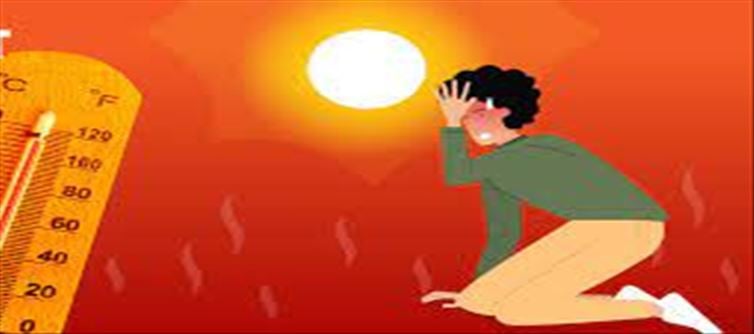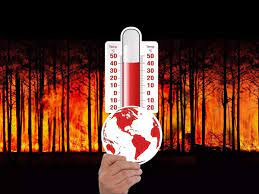
When the temperature is high and the humidity of the air is also high, it is called wet-bulb temperature. The heat wave is raging in many parts of the country. In that way, the summer heat has been burning in tamil Nadu for the past few days. Temperatures in many cities, including Chennai, have crossed 100 degrees Fahrenheit. Experts have warned that these temperatures may increase further in the coming times. In this context, Sundararajan, a climate and environmental activist and a member of Poovalak's Friends Movement, has posted a warning on his twitter page. The post reads, “Warning: Chennai's "wet-bulb" temperature reached 31.3 degrees today. "Wet-bulb" temperatures are more problematic if they exceed 30 degrees. Against this background, we had thought that the "wet-bulb" stage would arrive by 2050, but approaching that stage now is a worrying aspect." mentioned that.
 When the temperature is high and the humidity of the air is also high, it is called wet-bulb temperature. Humans normally cool themselves by sweating. That is, sweat carries away heat from humans when it evaporates. This lowers the temperature of humans. But if the humidity in the air is high, this process will slow down. This means that if the air is already high in humidity, sweat will evaporate at a slower rate.
When the temperature is high and the humidity of the air is also high, it is called wet-bulb temperature. Humans normally cool themselves by sweating. That is, sweat carries away heat from humans when it evaporates. This lowers the temperature of humans. But if the humidity in the air is high, this process will slow down. This means that if the air is already high in humidity, sweat will evaporate at a slower rate.So the heat of our body does not decrease. At one point the heat is too high and if we don't sweat it can lead to death. According to studies, if the wet bulb temperature is above 35 degrees, the human body will not sweat. It is said that if you don't have air conditioning in this hot environment, you will die in a few hours. This temperature is dangerous even for a person in good health, well hydrated, and resting in the shade without heavy clothing. This wet bulb temperature is lower than the normal temperature. It is dangerous for humans when it increases.
The warmer the air, the more humid it will be. So if global temperature increases, humidity also increases. Due to this the wet bulb temperature also increases. Studies show that this wet bulb temperature has already increased in areas including South Asia. It may also spread to other parts of the world. Experts warn that unless adequate measures are taken to curb global warming, this problem will be faced in the long run.




 click and follow Indiaherald WhatsApp channel
click and follow Indiaherald WhatsApp channel